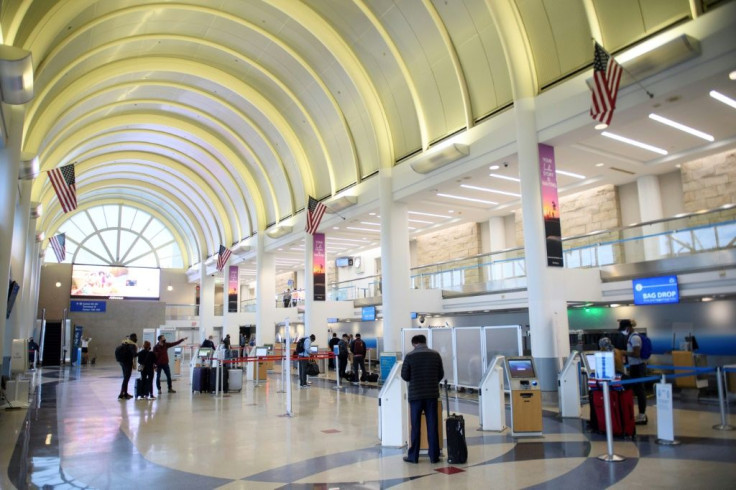Holiday Travel 2020: CDC Advisory On Holiday Travel During COVID-19
KEY POINTS
- The CDC has reminders for travelers during the holidays
- Those who decide to travel should consider getting tested before and after the trip
- People who may feel well can still spread COVID-19 to others, according to the agency
- Following simple guidelines can help prevent the spread of COVID-19
Since before Thanksgiving, the Centers for Disease Control and Prevention (CDC) has been reiterating one message to Americans amid the rising cases of COVID-19: Stay home. With the upcoming holidays, the agency is once again sharing words of advice about traveling for the holidays.
"Travel can increase your chance of spreading and getting COVID-19," the CDC says in its updated domestic travel guidelines. "Postponing travel and staying home is the best way to protect yourself and others from COVID-19."
Despite this urgent message, however, over 980,000 people traveled on the weekend before Thanksgiving. This is a much lower number compared to the numbers before the pandemic but still higher than health officials were hoping for.
Now that the holidays are just around the corner, health officials are once again urging people to avoid holiday travel and even shares some important questions to answer before considering traveling. These include asking whether anyone in the household has an increased risk for getting very sick from COVID-19, whether cases are increasing either in the destination or point of origin and if the travel involves visiting people who have had close contact with people they don't live with in the last 14 days.
"If the answer to any of these questions is 'yes,' you should consider making other plans, such as delaying your travel," the CDC advises.
For those who decide to travel, the agency has shared some tips on how they can protect themselves and others from COVID-19:
Check Guidelines
It's important to check the local travel restrictions in your destination beforehand, the CDC says. Some states and cities may have different travel guidelines from the point of origin, so it's best to make sure of their guidelines ahead of time.
Keep in mind that these may change over time, so it's important to check the guidelines frequently.
Be Prepared
Make sure to bring supplies such as masks and hand sanitizers. According to the CDC, you should get the flu shot before your trip. This will protect you from the flu, which will likely spread in the fall and winter, thereby preventing hospitals from getting overwhelmed by cases of both the flu and COVID-19.
It's also important to prepare any documents that may be required by the local authorities in your destination or when you use public transport, like a COVID-19 test result.
Socially Distance
Stay 6 feet away from people who are not in your travel group and anyone who is sick. It's also important to keep wearing a mask that covers both the nose and mouth, especially in public places such as airports. Do the same thing during travel via public transport.
The CDC also advises against activities that can put people at higher risk for contracting COVID-19. These include attending large gatherings such as funerals, weddings, parties, concerts or sporting events. People are also warned of the risks of being on public transportation, traveling on a boat or cruise ship and being in crowded places such as bars, fitness centers and movie theaters.
Practice Safety
As always, practice frequent and proper handwashing. If water is not available, then use a hand sanitizer with at least 60% alcohol. It's also important to avoid touching the mouth, eyes and nose, the CDC says.
Get Tested Twice
Again, the CDC notes that the "safest thing to do is stay home." However, if travel is really unavoidable, then it would be wise to get tested one to three days before a trip and again three to five days after returning.
People who will get tested after the trip are being advised to reduce non-essential activities for seven days after the travel. Those who will not get tested after the trip are being advised to avoid non-essential activities for 10 days after.
Naturally, the CDC is advising those who are sick or test positive for COVID-19 not to travel. Instead, it is best to isolate away from others and to follow health recommendations.
"You and your travel companions (including children) may feel well and not have any symptoms, but you can still spread COVID-19 to family, friends, and community after travel," the CDC says.

© Copyright IBTimes 2025. All rights reserved.






















